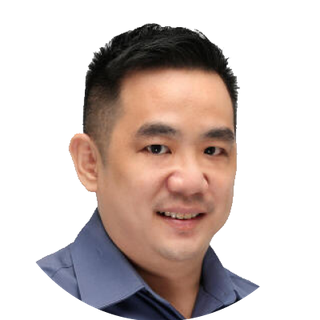Singapore to relax Covid curbs further, including for nightspots, migrant workers

NIGHTLIFE establishments with dancing among patrons will no longer be subject to a capacity limit from Jun 14, the Ministry of Health (MOH) said on Friday (Jun 10).
Patrons to these nightspots will also no longer need to obtain a negative Antigen Rapid Test (ART) result to enter the venue.
However, enforcement officers will still conduct random checks to ensure that only fully vaccinated persons enter these nightspots.
In addition, from Jun 24, migrant workers residing in dormitories will no longer need an exit pass to visit community areas.
To manage crowding at popular places, MOH will introduce a new mechanism to manage the high footfall at 4 locations – Chinatown, Geylang Serai, Jurong East and Little India.
Migrant workers will have to apply for a visit pass to visit these locations on Sundays and public holidays.
GET BT IN YOUR INBOX DAILY

Start and end each day with the latest news stories and analyses delivered straight to your inbox.
Up to 80,000 passes — 30,000 for Little India, 20,000 for Jurong East and 15,000 each for Chinatown and Geylang Serai — will be made available in total on each of these days.
Migrant workers visiting these popular locations on weekdays, Saturdays and non-public holidays will not require visit passes. They are also not required to apply for these passes to visit other places in Singapore, including on Sundays and public holidays.
These are part of a slew of updates on Friday as Singapore looks to further relax its rules on safe management measures (SMMs).
“Our local epidemic situation has been stable over the past month, despite having stood down most of our safe management measures and the opening up of our borders,” the ministry said in a statement.
While the daily average local case count is at around 3,000 per day, the average number of Covid-19 related hospitalisations has remained lower than 300, compared to a peak of around 1,700 during the Omicron wave.
Covid-19 related Intensive Care Unit (ICU) patients are also in the single digits, MOH said.
However, the ministry urged eligible individuals who have not received their primary series and booster vaccinations to do so quickly.
“We must continue to stay vigilant against the risk of a new wave of cases, as immunity in our population wanes in the coming months and new variants may emerge,” MOH said. “We strongly urge the remaining eligible individuals, particularly our seniors who are more vulnerable to severe disease if they were to become infected by Covid-19, to come forth for their vaccination and boosters, as soon as possible.”
From Jul 1, medically vulnerable persons aged 18 years and above with specific health conditions — including chronic diseases of the heart, lungs, kidneys, liver and other organ systems – will no longer require a doctor’s referral —to receive their second booster.
These individuals may self-declare their health conditions to receive their second booster by walking into any vaccination centre, public health preparedness clinics (PHPCs) and polyclinics that offer vaccinations.
From today, persons aged 50 years and above who wish to receive their second booster may do so by walking into any vaccination centre offering mRNA vaccines.
Meanwhile, MOH also declared that it will progressively scale back the pandemic subsidy policy.
Since February 2020, Singapore residents with respiratory infection symptoms — regardless of whether they are related to Covid 19 — have been charged a flat subsidised rate of S$10 at PHPCs, while seniors from the Pioneer Generation and Merdeka Generation have been charged a lower rate of S$5.
From Jul 1, subsidies at PHPCs and polyclinics for the treatment of respiratory infections will revert to pre-Covid levels.
Government subsidies for telemedicine care for individuals under Protocol 2 — those who are mildly symptomatic, low risk, and recovering from home — will also cease from July 1.
Singaporeans will continue to enjoy prevailing subsidies under the Community Health Assist Scheme (CHAS) at CHAS General Practitioner (GP) clinics.
In addition, Singapore citizens, permanent residents and long-term pass holders who seek emergency treatment for Covid-19 in Emergency Departments (ED) of public acute hospitals will be required to pay the ED charges from Jul 1 if they do not require admission after visiting the ED.
Those who are assessed to require hospital or Covid-19 Treatment Facility (CTF) admission for Covid-19 treatment will continue to have their ED, inpatient and/or CTF bills fully subsidised by the government, if they are fully vaccinated or certified to be medically ineligible for vaccination.
MOH said this will help the ministry manage the demand for ED services.
KEYWORDS IN THIS ARTICLE
BT is now on Telegram!
For daily updates on weekdays and specially selected content for the weekend. Subscribe to t.me/BizTimes
International
Abu Dhabi’s IHC to buy back up to US$1.4 billion of its shares
Dubai’s financial centre expects ‘busiest year’ as firms rush in
Israel strikes Gaza city of Rafah after evacuation order
Britain's King Charles III marks first anniversary of coronation
German deficit forecast at 1.75% in 2024, says stability council
SNP veteran John Swinney set to be Scotland’s next leader
